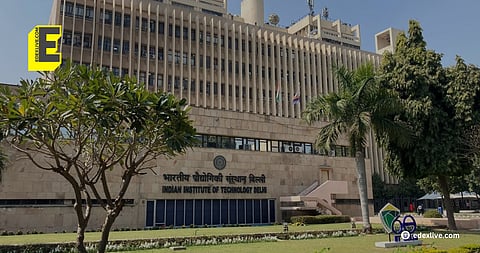

The Indian Institute of Technology (IIT) Delhi is set to implement a curriculum revision starting from the 2025-26 academic year, set to introduce greater flexibility and innovative programmes across its academic courses.
The changes, announced on Tuesday, May 27, 2025, are designed to align with emerging technological trends and prepare students for industry and research.
Flexible BTech-MTech pathway
IIT Delhi is introducing a new academic structure allowing undergraduate students to pursue a Master's in Technology (MTech) degree in any available programme at the institute, regardless of their BTech specialisation, starting at the end of their third year.
“So essentially, a BTech student from a particular branch can opt for an MTech in a completely different branch at the end of their third year. This will allow a student to graduate with both bachelor’s and master’s degrees in five years,” said Shouri Chatterjee, Assistant Dean (Curriculum).
Comprehensive curriculum revision
The curriculum overhaul, approved by IIT Delhi’s Senate, covers undergraduate, postgraduate, and PhD programmes. Initiated in early 2022, the revision process incorporated feedback from students, alumni, and industry experts.
“Each course in every programme was reviewed, revamped, and approved by the Senate, which is IIT-Delhi’s highest academic body. IIT-Delhi reviews its curriculum periodically, approximately every 10 years. The current process began in early 2022 and included extensive feedback from students, alumni, and industry experts,” Chatterjee said.
Integration of AI in programming
A standout feature of the revised curriculum is the inclusion of AI-based code generators in the introductory programming course, mandatory for all undergraduate students.
“Students will be taught how to use AI responsibly to write better programmes for more complex problems in less time. This innovation will future-proof the graduates of the next decade across disciplines by nurturing them in the mode of programming that is taking over the world. This course will be mandatory for all UG students,” said Narayanan Kurur, Dean of Academics.
List of new academic programs
Starting in the 2025-26 academic year, IIT Delhi will launch three new programmes:
- BTech in Design: Admission through JEE (Advanced) and the Undergraduate Common Entrance Examination for Design (UCEED).
- Bachelor of Science (BS) in Chemistry: The first BS programme at IIT Delhi, accessible via JEE (Advanced).
- MTech in Photonics: Admission through the Graduate Aptitude Test in Engineering (GATE).
“The BS Chemistry is also the first BS programme at IIT-Delhi,” Kurur said.
Program flexibility
IIT Delhi will maintain its policy allowing students admitted through the Joint Entrance Examination (JEE) (Advanced) to switch academic programmes after their first year based on merit, despite some older IITs discontinuing this practice.
Additional enhancements include opportunities to pursue a minor degree or specialisation alongside the primary degree, as well as the introduction of an honours programme as an add-on to the BTech.
The revised MTech and MS (Research) curricula will adopt an outcomes-based approach, with stronger industry integration. Key features include a capstone project emphasising collaborative problem-solving and a summer internship to enhance external engagement.
